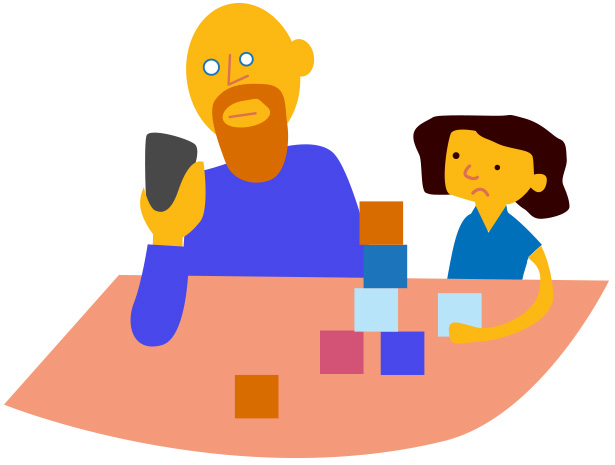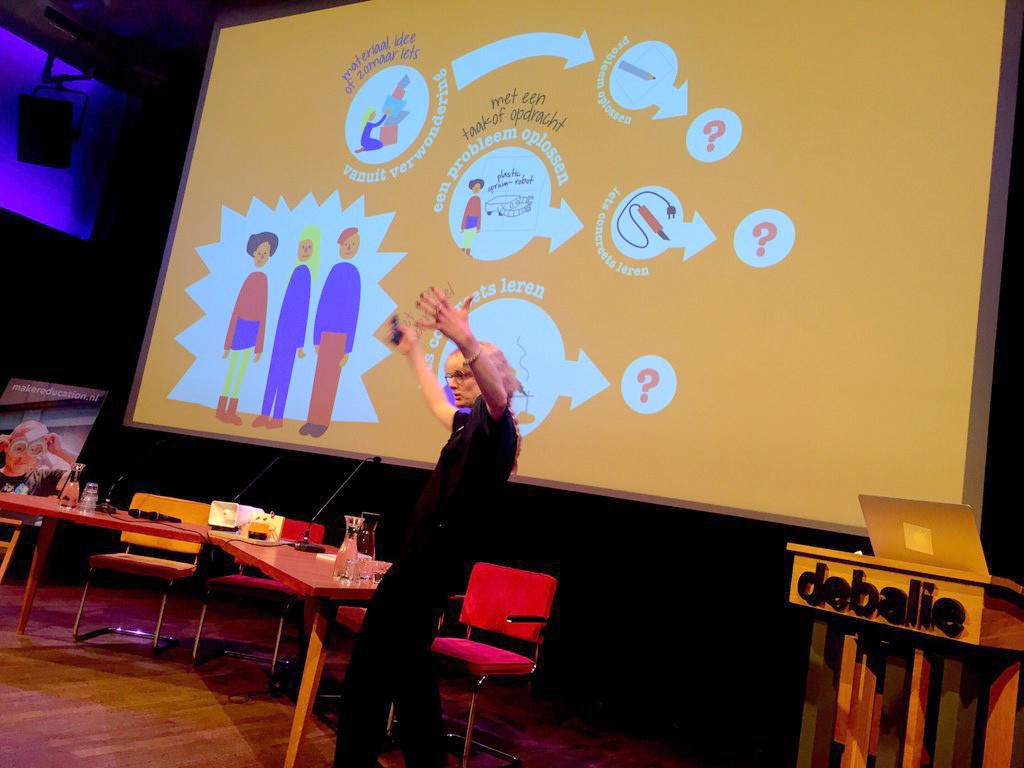I feel nervous.
I understand our wealth and our safety. I am grateful. But I have an itchy feeling too. We are consumers: we buy the newest phone, use the sexiest disruptive service, and share it all online. We teach our children to be consumers: we get them the newest phone, allow them access to the coolest (sponsored) vlogs and teach them to share it all online.
Our reality
But in doing so we created a nightmare. We buy, we use, we do as expected. We became users, addicted to cleverly designed tools. We became passive, we became ill equipped. Not at all ready for whatever.
Coding is great
We don’t want this future for our children. So we decided to teach them modern technology. If they can code, they can resist. (Or get a job.) I love that. I really do. It’s important, it’s great. And companies love it too: money get’s thrown around with gusto.
But coding is only coding
The things we need in our children cannot be mastered by coding alone. I believe we need makers. Yes, coding is making. But making is not coding. To some the modern tech focus is too far off. Too abstract, intangible. They find cooking a more natural entrance into being a self-aware resisting citizen. I believe we have to embrace that.
Why making?
5 reasons:
- Making is a bridge – When you experience a lot of tools and techniques from a very young age you’ll benefit all your life. You develop a healthy (maker-) self-confidence and experience numerous times that new things can be mastered. You build a bridge in your head! Technology and making simply becomes a tool to express yourself.
- The maker-mindset is a growth mindset – A lot of makers use tech in a playful manner: they build an existing product into something else. Everything around them is material or an idea. They are fearless when it comes to inventing as they go along. People that can look at problems with curiosity solve them more easily.
- To understand is to invent – You can find all answers to your questions on the Internet. But when it stops there, knowledge tends to stay theoretical. You learn more by experience. Only when you really understand something, it can become your tool. And than there are no limits to what you can build!
- Making trains the brain – Making things with your hands leads to new thoughts in your head. The product is not the only goal; the process is important too. A friend recently told me that only 3% of ideas emerge behind a computer screen or desk. Makers (and knitting grannies) know this.
- If you can’t see it, you can’t be it – You have to know tools and materials to be able to use them in your projects. You can’t work with it, or think with it, if you’ve never felt it. More experience provides a bigger mental en physical toolbox.
Makers do more
A lot of people agree. They open makerspaces and design maker-education solutions for schools. Teaching children how to design, how to code, and sometimes also how to cook. And they are right.
‘So, we’re good!’ you may think.
No, we are not. Schools and makerspaces cannot be the answer. Not alone. Children spend not even 25% of their (awake) time in school. And schools do so much already!
We must get into the homes. Parents are the most important roll-models when it comes media use (this may be a problem), but they are also the most important roll-models for making! And that’s an opportunity screaming at us. It’s just, the parents are a little shy. They forgot how to solder and never really knitted a sweater. They prefer ready made toys too taking a risk with a slightly rough gift (like a hammer!). They are not really sure how to play or make together (and their phones are buzzing all the time).
But they hold the key. They have the power. We must only show them.
We’ve been busy
We try that. By making.
- We made a poster, with the 50 tools you could explore with your child before the age of 12.
- We make Tinkering boxes that are lent out through schools. So families can try out tools without having to buy them.
- We do research into making and how you could approach it, knowing all people are different.
- We share our thoughts on creating the right circumstances for making at home.
- We write, and write and write some more. And we do drawings too! And talks. Really cool talks.
- And we are working on a book. (My mum is really proud of that.)
It’s easy
We love what we do.
It’s hard
Because sometimes we feel we are too few. And too small. We must do more, we must move faster. We must fly higher.
Use our things and share them. And give feedback! We really love that. And share ideas, with us, with all. And – most important of all- make. Make together. <3

